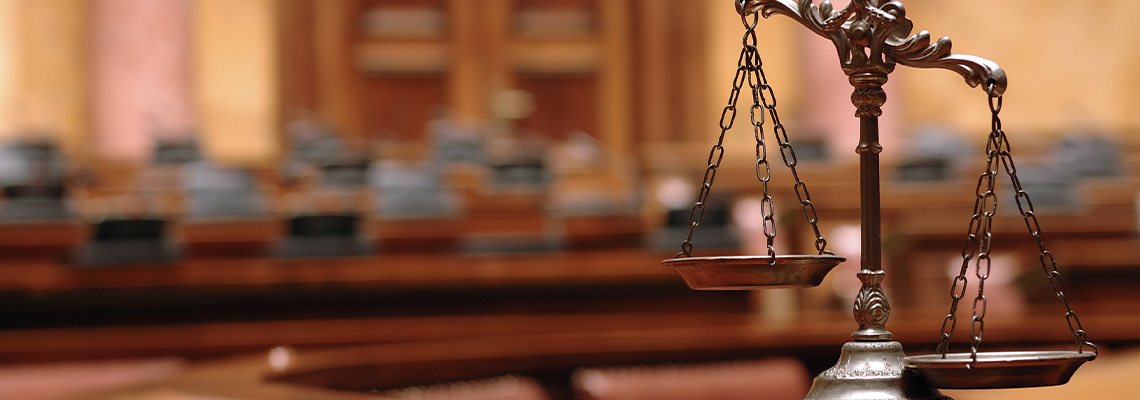
Rule 11 Abuse
Every now and then, you run into a lawyer who feels the need to ask for Rule 11 sanctions with every motion they file, regardless of whether Rule 11 sanctions are justified or not. Apparently these lawyers have some preconceived idea that with every case they handle, opposing counsel’s acts are always nefarious and, therefore, worthy of Rule 11 sanctions. While most district court judges understand Rule 11 and correspondingly deny these motions, every now and then you run into a judge that will actually grant the motion even if the motion is not well founded.
I was recently involved in a case representing a party who had previously be represented by another attorney. I was retained to represent the LLC plaintiff in the case the day prior to a hearing on defendants’ motion for summary judgment. Within the motion for summary judgment was a motion for Rule 11 sanctions. The district court granted defendants’ motion for summary judgment and awarded defendants attorney fees under Rule 11. The ruling was appealed including the granting of Rule 11 sanctions.
Rule 11 requires any motion for sanctions to be made “separately from any other motion and must describe the specific conduct that allegedly violates Rule 11(b).” NRCP 11(c)(1)(a). The motion must describe the specific conduct that allegedly violates section 11(b). Id. The motion must be served on opposing counsel but not filed with the court. Id. This is the 21 day “safe harbor” provision which allows the targeted attorney and party the opportunity to correct or withdraw the alleged wrongful claim or assertion. If the opposing counsel or party fails or declines to make the correction within the safe harbor provision, the moving party may then file the Rule 11 motion and present it to the court. The court must make express findings of fact and law to establish why there is a violation of Rule 11. If the court determines there is a Rule 11 violation, the sanction is limited by subpart (c)(4) to that which deters the attorney and/or party from the conduct. It can include only those attorney fees and expenses directly related to the violation. The trial court has authority under subpart (c)(3) to issue a Show Cause Order why Rule sanctions should be imposed on an attorney or party for violating Rule 11. The Show Cause Order must describe the specific conduct that violates Rule 11(b). The trial court cannot impose a sanction prior to issuing the Order to Show Cause and completing the required proceeding.
The overwhelming majority of federal appellate courts have held that the conditions of Rule 11 must be strictly followed and that Rule 11 should be rarely used. In Operating Engineers Pension Trust v. AC Co., 859 F.2d 1336, 1343-44 (9th Cir. 1988), the court not only reversed Rule 11 sanctions but admonished lower courts to show more restraint because “Rule 11 is an extraordinary remedy, one to be exercised with extreme caution.”
The requirement of a separate Rule 11 motion is mandatory. Radcliffe v. Rainbow Constr. Co., 254 F.3d 772, 789 (9th Cir. 2001). A request for Rule 11 sanctions cannot be contained within any other motion. Id. The only reference to Rule 11 is found in Defendants’ Summary Judgment Motion is at pages 30-31. (1 App. 36-37). There is no separate Rule 11 motion. The court in Nuwesra v. Merrill Lynch, Fenner & Smith, Inc., 174 F.3d 87, 94 (2d Cir. 1999), rejected defendants’ argument to treat their affidavit of service and reply affidavit as a motion for Rule 11 sanctions because a motion must “be made separately from other motions or requests.” (citations omitted). In Barber v. Miller, 146 F.3d 707, 710 (9th Cir. 1998), the court acknowledged that defendant gave plaintiff multiple warnings but concluded that such warnings were not motions “and the Rule requires service of a motion.”
The 21-day safe harbor provision is also considered a mandatory step. Radcliffe at 788. Other federal appellate courts concur. Tompkins v. Cyr, 202 F.3d 770, 788 (5th Cir. 2000); Elliott v. Tilton, 64 F.3d 213, 216 (5th Cir. 1995); Penn, LLC v. Prosper Bus. Dev. Corp., 773 F.3d 764 (6th Cir. 2014. In Corley v. Rosewood Care Ctr., Inc., 142 F.3d 1041, 1058 (7th Cir. 1998), the defendants conceded that rule 11 sanctions were improper where they had failed to comply with the separate motion and safe harbor provisions of Rule 11.
Due process is heavily involved in Rule 11 proceedings. Subsection (c)(2) of the Rule requires notice of the specific claims that are alleged to be improper. The targeted attorney/party must be given an opportunity to respond. No such opportunity was provided for in this case.
Finally, a rule 11 sanction should only be imposed “to deter repetition of the conduct or comparable conduct by other similarly situated.” NRCP 11(c)(4). There are further limitations on monetary sanctions as the court has ordered in this case “against a represented party for violating Rule 11(b)(2).
The Nevada Supreme Court reversed the district court’s order awarding Rule 11 sanctions concluding that the procedural requirements of Rule 11 were not followed.
